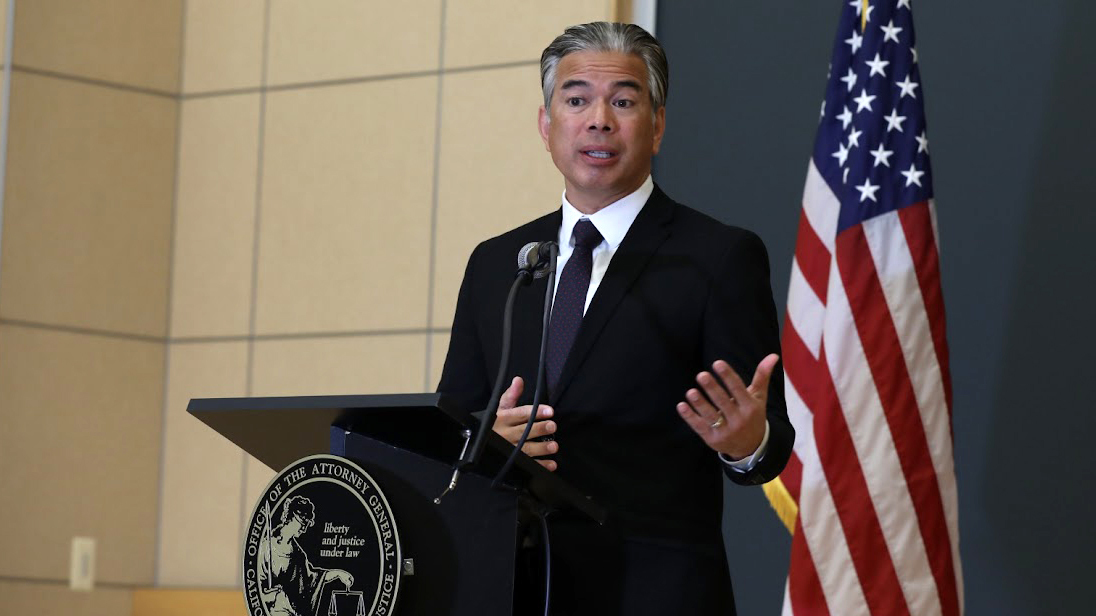
Calif. Atty Gen. Rob Bonta Takes Action to Protect Section 8 Renters
Lila Brown | California Black Media
It took authorities in Los Angeles 12 years to process and approve Delsean Keys’ Section 8 housing application.
After finally being accepted into the federal government’s Housing Choice Voucher (HCV) program for low-income households, the 41-year-old Keys was informed that he had only 90 days to find an apartment before his housing voucher would expire.
“Most landlords wanted to do a background and credit check along with income verification,” Keys, who lives in the Wilmington neighborhood of Los Angeles, told California Black Media (CBM).
After securing Section 8 housing at his current residence, where he’s lived for five years, Keys’ challenges did not end.
“During the COVID-19 pandemic, our landlord tried to raise rent, but we as tenants petitioned against it, pushing back that they couldn’t do that,” Keys said. “We were facing a global pandemic at no fault of our own. Many of us were on unemployment and they even attempted to receive back rent.”

Keys eventually accepted a minimal rent increase due to a change in his income which is allowed as income must be reported to the local Housing Authority.
For many tenants like Keys, who receive rental assistance through the HCV program, the California Department of Justice (DOJ) reports that it is common for landlords to raise their rents in violation of the law, while adhering to established rent caps for renters who pay market rates.
On June 30, California Attorney General Rob Bonta issued a letter to all housing authorities in the state, reminding them that tenants who receive Section 8 Housing Choice Vouchers are protected under California’s Tenant Protection Act (TPA).
According to the DOJ’sHousing Justice Team, there have been numerous complaints about some local housing authorities approving rent increases that exceed the TPA’s rent cap.
Landlords receiving approvals for rent increases may think they are in compliance with state and local law, but Bonta clarified in his letter that any rent increases outside of the guidelines of the TPA violate state or local laws and are “plainly wrong” and that the DOJ is taking those violations seriously.
Bonta emphasized that recipients of Section 8 vouchers are equally protected under laws that establish rent caps.
“As California grapples with an unprecedented housing crisis, it’s critical that we work together to protect those most at risk of losing their homes,” said Bonta. “Section 8 recipients are some of the most vulnerable of California’s tenants and subjecting them to illegal and burdensome rent increases is unfair and may contribute to homelessness.”
In the letters, Bonta explained that California’s TPA, which bars landlords from raising rent for most tenants by more than 5%, plus inflation, or 10% total each year, whichever is lower, applies to recipients of the Section 8 Housing Choice vouchers and other similar housing assistance programs.
“Unfortunately, there are some shady landlords who are not in compliance with how Section 8 operates,” says Joel Green, 38, a landlord who provides permanent and supportive housing for the elderly at Abode Communities. “Some private landlords discriminate, or they judge tenants based on their previous experiences, which is not fair. We need to shine light on what’s actually going on with those landlords who are doing things that are not compliant with Section 8 rules.”
The federal government’s Section 8 HCV program – whose waiting list is currently closed for public registration due to a backlog of applicants — is the country’s major program for assisting very low-income families, the elderly, and the disabled to afford safe and sanitary housing in the private market. Since housing assistance is provided on behalf of the family or individual, participants are allowed to find their own housing. The participant is free to choose any housing that meets the requirements of the program.
Housing choice vouchers are administered locally by public housing agencies (PHAs). The PHAs receive federal funds from the U.S. Department of Housing and Urban Development (HUD) to administer the voucher program.
Housing subsidies are paid to the landlord directly by the PHA on behalf of the participating family. The family then pays the difference between the actual rent charged by the landlord and the amount subsidized by the program.
Another landlord who spoke to CBM off the record said sometimes landlords do not intend to increase rents, but “problematic” tenants give them few options.
She said those tenants sometimes ill-treat or damage the properties they rent, which leads to “harsher-than-normal wear and tear, leading to host to exorbitant maintenance and repair costs.
As more cities across the United States struggle with the housing affordability and availability, the federal Housing Choice Voucher Program is in high demand. In densely populated cities such as Los Angeles, the waitlist can be abnormally long, authorities point out.
Recently, Mayor of Los Angeles, Karen Bass pleaded with local property managers and private landlords to take at least one to two vouchers during the city’s State of Emergency against homelessness, which she declared in January.
California’s housing affordability problem is a major contributing factor to the state’s homelessness crisis, which is having a disproportionate impact on Black Californians. About 30 % of the state’s approximately 160,000 homeless people are African American. Blacks make up less than 6 % of the state’s population.
Last week, Bonta provided legal guidance to local governments, warning them that the DOJ is willing to take legal action against cities that “frustrate” the state’s efforts to increase housing supply by enacting “emergency zoning ordinances.”
“Under California law, urgency zoning ordinances can only be enacted if a high bar is met. Unfortunately, we are seeing urgency zoning ordinances that fall short of meeting that high bar,” said Bonta. “Every community must do its part to build housing. I encourage local governments to take a good look at their urgency zoning ordinances for compliance.”




